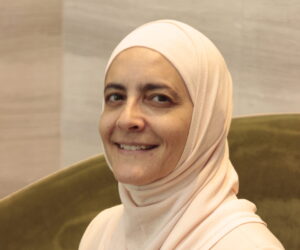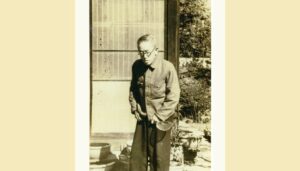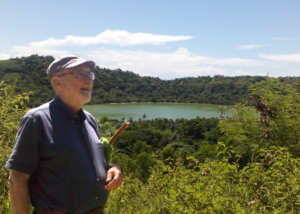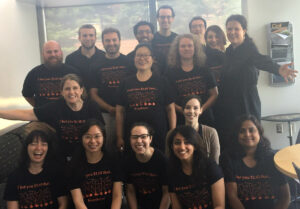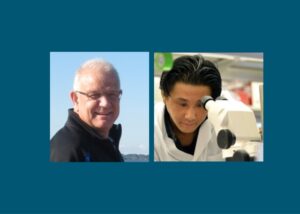Enter your address to receive notifications about new posts to your email.
Articles by Guest Author (138 results)
-
Farsi Multilingual Seminar: Farsi-speaking scientists discuss access to scientific resources and graduate school education
Guest post by Mehrnaz Afkani and Parinaz Khalilzadeh. In July 2021, as part of the Genetics Society of America’s Multilingual Seminar Series, scientists fluent in Farsi came together with a goal of connecting with each other and providing a platform for speaking about science in Farsi. This included discussing some of the issues and barriers…
-
For the first Multilingual Seminar, Arabic-speaking scientists discuss expanding accessibility through translation
Guest post by Marah Wahbeh and Arby Abood. Last year, after a casual conversation with Spanish-speaking early career scientists about the struggle of communicating their work in Spanish, Jessica Vélez, PhD, was inspired to create the Multilingual Seminar Series. This series offers an opportunity for multilingual and non-English speaking scientists and science enthusiasts to talk…
-
To see what everyone sees but think what no one has thought, you need diversity
SASTA President Rana Dajani discusses the need for diversity and introduces SASTA’s mission to advance science and technology in the Arab world. The Society for the Advancement of Science and Technology in the Arab World (SASTA) is a non-profit organization in the US that strives to mobilize and catalyze the engagement of scientists, professionals, NGO’s, academic…
-
Policy & Advocacy
Demystifying Hill Day: Early Career Leadership Program members share their experiences
It’s no secret that the unique situation we are experiencing as the result of the SARS-CoV-2 (COVID-19) outbreak is deeply affecting the lives of millions around the world, both directly and indirectly. Scientists have had to adapt, where possible, to work remotely, only performing what is deemed “critical” by a given administration. This begs the…
-
In Memoriam: Richard Lewontin
Dick on sabbatical and my good fortune Guest post in memory of Richard Lewontin by Thoru Pederson. When I was a graduate student in the Zoology Department at Syracuse University, a visiting professor took an office across the hall from the lab where I was stationed. He came “across” to me (not a cis-trans test…
-
100 years since the medaka’s international debut: Aida’s legacy
From a Kyoto garden to scientific discoveries. Since the 17th century, medaka fish have been bred for their beautiful colors. Shortly after the 1900 re-discovery of Mendel’s laws of inheritance, medaka began to be used for genetic studies. Recessive inheritance of the orange-red (b) and white (r) variants, female-limited appearance of the white phenotype, and an…
-
In memoriam: Jean R. David (1931-2021)
Jean Robert David, the last active member of the French generation who significantly contributed to the establishment of the nine species in the Drosophila melanogaster subgroup as a model for evolutionary genetics, passed away on June 19, 2021, aged 90. Jean dedicated his 70-year academic career to studying Drosophila biology and evolution, starting as an…
-
Working together during the COVID-19 pandemic, a silver lining in a trying time
Guest post by A.J. Marian Walhout, PhD. Massachusetts, March 2020: The early days of the COVID-19 pandemic that would profoundly affect us all. Labs shut down abruptly, assay trials were disrupted, some experiments in progress were thrown out. Now what? With pipettes unused on the bench and the foreseeable future unclear, how long would this…
-
Interview with Hugo Bellen and Shinya Yamamoto on the Model Organism Screen Centers of the Undiagnosed Disease Network
This is a guest post by Sarah Marshall, originally published in the Undiagnosed Disease Network’s Participant Engagement and Empowerment Resource (UDN PEER). In April 2021, I had the pleasure of interviewing Drs. Hugo Bellen [2021 GSA President] and Shinya Yamamoto about their work at the Model Organisms Screening Center (MOSC) at Baylor College of Medicine,…
-
So, you’ve been asked to talk to the public: lessons from COVID-19 news coverage
What scientists can learn from pandemic communication failures.
-
Three ways that the field of genetics can be more equitable
Guest post by Emma Hinkle. The field of genetics has provided some of the answers to life’s biggest questions. However, discovering the base pairs that define us has more often driven us apart instead of together. Genetics should be for all people, but this field lacks equity in three specific ways: education, research, and representation. …



